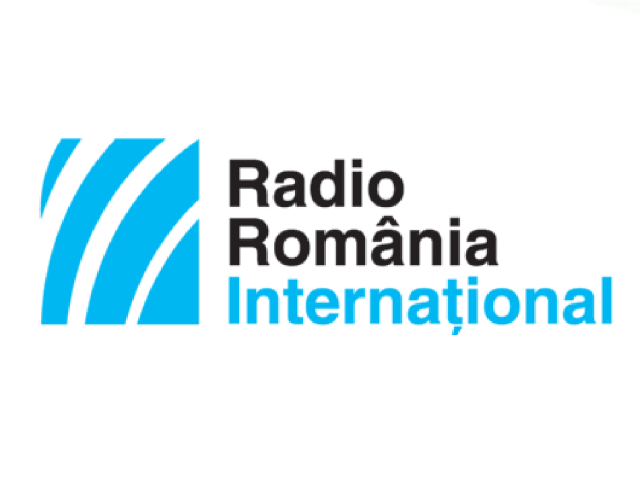Noel Bernard – a Legend of Romanian Journalism
Few names in Romanian journalism between 1945 and 1989 hold more prestige than the name Noel Bernard.
Warning: Trying to access array offset on null in /home/web/rri.ro/public/wp-content/themes/rri/template-parts/content.php on line 53

Warning: Trying to access array offset on null in /home/web/rri.ro/public/wp-content/themes/rri/template-parts/content.php on line 98
Steliu Lambru,
17.09.2018, 10:29
Noel Bernard was born in 1925 in Bucharest. His father was Jewish and his mother was a Austrian Catholic. In 1940 he left Romania with his family to settle in Palestine. After the war, he emigrated to Britain, and then moved to the Federal Republic of Germany, where he went on to become head of the Romanian service with Radio Free Europe. He is seen as an exemplary journalist thanks to his balanced, rigorous, and persevering approach to the realities of communist Romania, up until 1981, the day he passed away at 56.
His death came as a shock to his colleagues, friends, and listeners. Essayist Virgil Ierunca wrote a memorable eulogy, which he read on the air at Radio Free Europe, a recording that Radio Romanias Center for Oral History keeps in its archives
Virgil Ierunca: “Noel Bernards biography has the luminous simplicity of a destiny. He was born and died in the studios of Radio Free Europe. Because the imaginary space of the studio comprised the real Romania in which Noel Bernard, this tempered agnostic, went into as into a religion. A strange religion with millions of invisible faithful, who were waiting for his words as if for redemption, in a country locked in by history and misfortune. The paradox is that Noel Bernard never preached. However, his country waited for his words with an eagerness that was beyond the cold tonality of communication. There is a mystery of vocation. Noel Bernards vocation was that of opposing lies as noise with truth as an essential whisper. To whisper essential truths means taking the simplest of words and arranging them such that each of them matches the listeners heart beat. This does not mean baffling the truth, but investing the word with that secret dimension that grants truth itself weight, a vocational necessity, a worthy rooting. All this without vanity.”
Noel Bernard knew how to do quality journalism out of love of his profession, which meant not only the wish to be as good as he could, but to put first the principles that everyone learns in childhood: the search for the truth, respect, humanism.
Virgil Ierunca: “Whoever listened to Noel Bernard — and I dont think there is anyone who hasnt — could not forget his voice. A voice whose transparency blended determined speech, a vigor of ideas, respect for facts. However, it wasnt missing fruitful irony, or a sense of wonderment, but these rhetorical tools never strayed from the elegant dignity of speech. Noel Bernard was more than a good journalist. There may have been some who were not receptive to this passion for looking at reality. These we can answer with the words of the dispassionate Paul Valery: Truth can only be obtained by passion.”
In the years of the communist dictatorship, which got bleaker and bleaker as it was nearing its end, Radio Free Europe was not only a vital means of information, but outright social medicine, in great part due to Noel Bernard.
Virgil Ierunca: “We may also say that Noel Bernards secret was that of not passionately cladding ideas and facts, which would have meant falling into ideology, but of interrogating truths passionately. Noel Bernard was not an ideologue, but a conscience that embodied the thirst for justice and truth on the part of Romanians everywhere. Thanks to him, Radio Free Europe became a soapbox for human rights where people brought their grievances to be heard high above, where no complaint is heard. The historical grievances of the miners in Jiu Valley reached Radio Free Europe and its director too. No one can forget that during the earthquake Romanians endured suffering and disaster easier thanks to Noel Bernard, who turned Radio Free Europe into an open studio for calls for help.”
Upon Noel Bernards death, the emotional and hopeful words uttered by his friend Virgil Ierunca showed what his departure left behind for each of us: “If, as they say, intelligence is only organized memory, Noel Bernard spent his intelligence through an unimaginable squandering of lucidity, effort, understanding, and action. He was the first to arrive at his workshop, and the last to leave. All that could be of interest for Romania was heard, weighed, interpreted, in order to be launched on the air in the country without antennas, in the systematically misinformed country. For Noel Bernard, the microphone became a living tool of his intelligence, and of everyones memory. The secret of death strives to turn now this precious presence into a frightful absence. Absence must remain without reason in this 11th hour, the hour of parting ways with our squandering friend. This is Radio Free Europe, without Noel Bernard, as if tears could wash away the mourning, yours and ours, the mourning of the radio waves.”
Radio Free Europe was never the same after Noel Bernards death, but he continued to inspire those he left behind to continue what he started. Time proved them right.






























